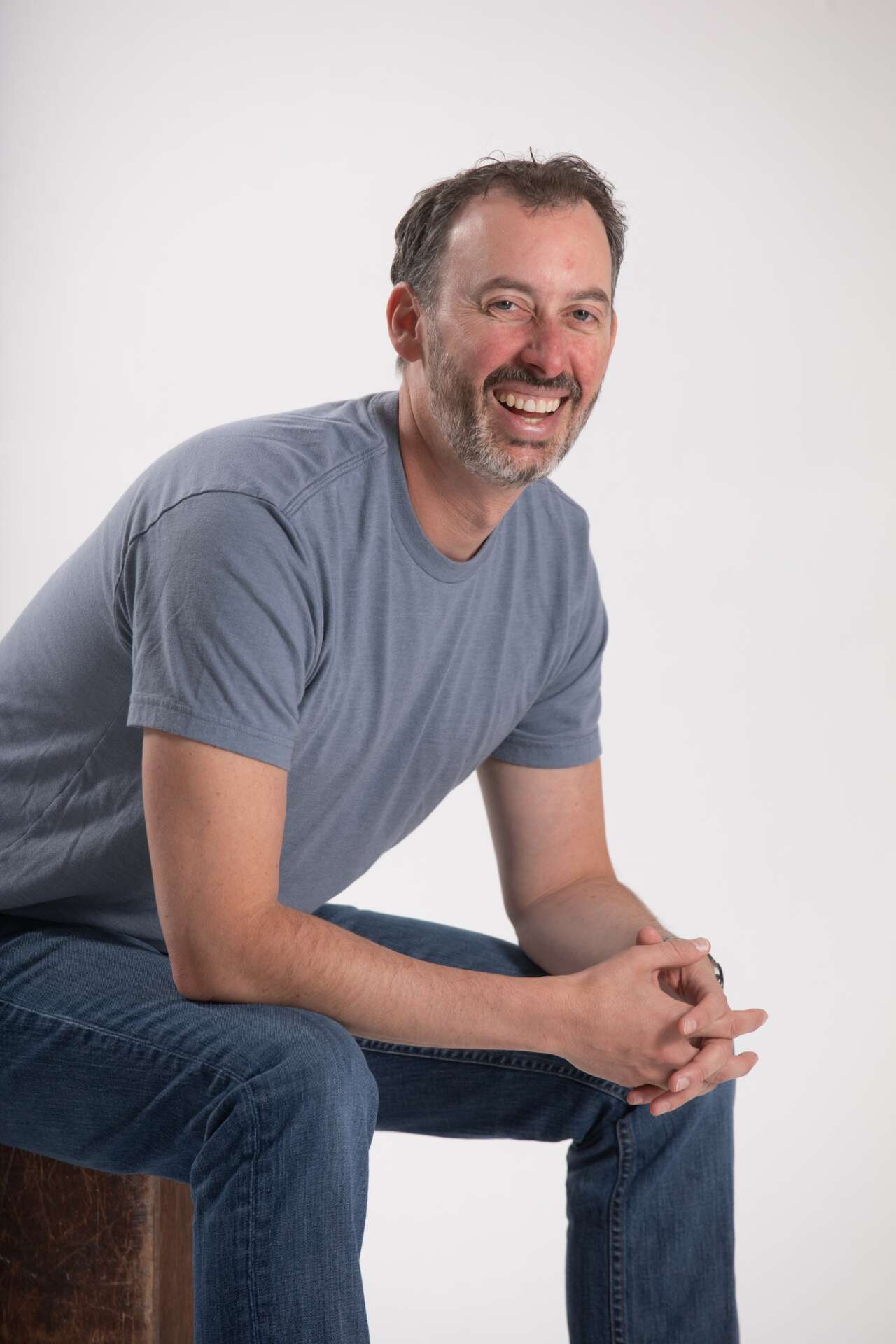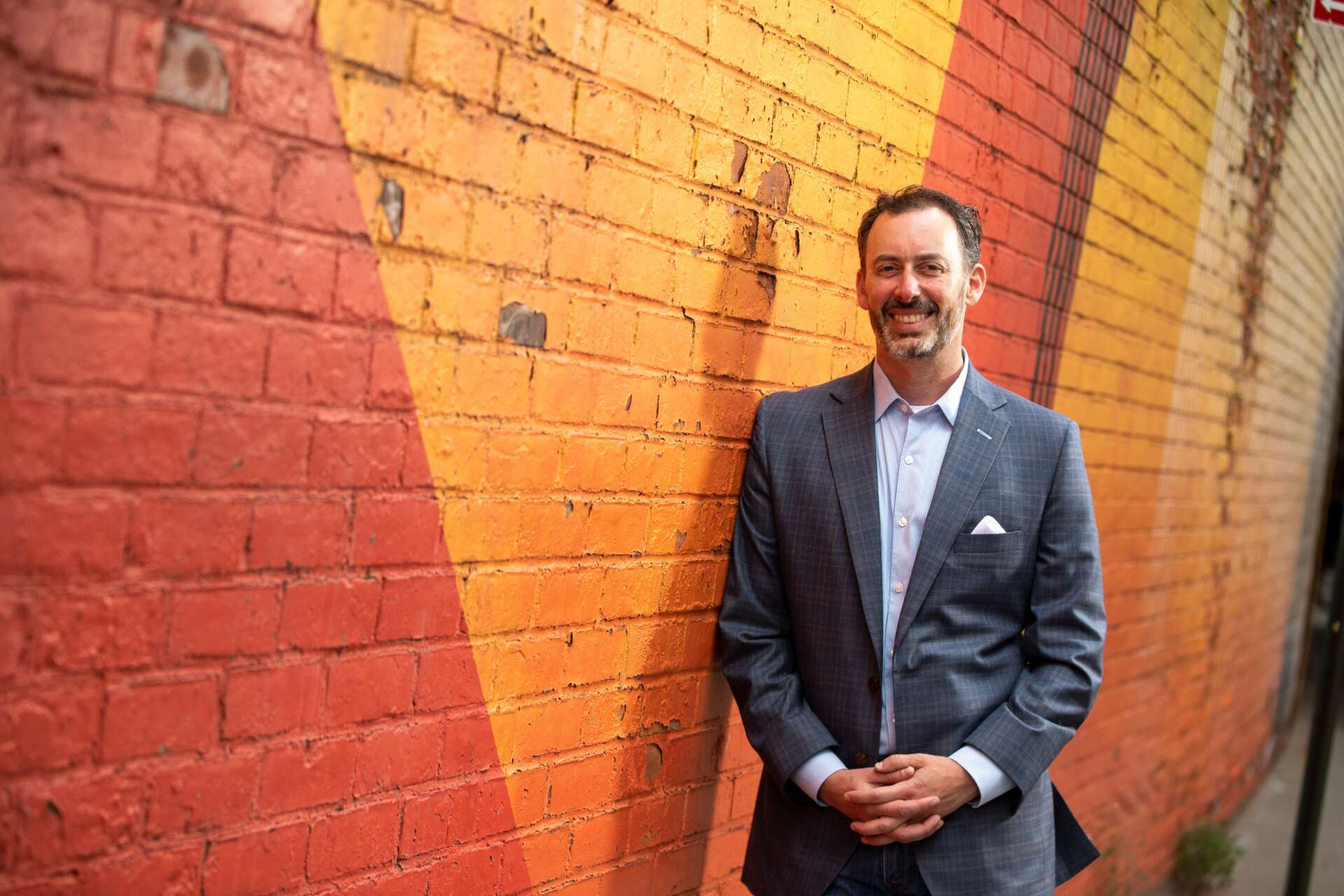We were lucky to catch up with Michael Goldberg recently and have shared our conversation below.
Alright, Michael thanks for taking the time to share your stories and insights with us today. Let’s start with a story that highlights an important way in which your brand diverges from the industry standard.
In a world with record-setting rates of resignations and quiet quitting, it’s never been a more important time for leaders to bring personality and humility to the corner office. There’s a secret culture in every organization that’s not shared with leadership; imagine knowing yours.
Organization culture is critical to the success of any company and the reality is that yours is different from what’s believed to be in the executive’s corner office. As an early adopter of social media for professional purposes, I created an account to connect with thousands of team members with the sole purpose of sharing news and events, but what happened over the years surprised me. There’s a real power to social media when embraced by leaders.
Proven where lives depended on it, leading one of New York’s largest hospitals, I implemented methods and strategies to facilitate creating a high-performing team with sustained increases in business results, employee engagement & employee satisfaction with tools readily available to all of us.
Communicating goals and demonstrating organizational values is often a long and largely opaque process. However as an executive of a $1B organization I lead the way for executives in organizations of all sizes by learning how utilizing social media to connect simultaneously with employees and the community (customers) streamlines communications and builds a true culture of transparency and trust.
Most executives rely on their corporate PR or internal communications teams to put out newsletters and announcements which are necessary and important parts of a coordinated communication strategy. In business and in life we’ve seen example after example that it’s the personal connections that ultimately bonds us to continue working at a great place or who’s business we want to support by buying a product or services.
As I put faces to the a largely faceless industry, a hospital, by highlighting a recognizing team members in all job functions I saw a strong growth in pride for the team working throughout the hospital. I saw patients, customers, and their families choosing our hospital over others. I saw less turnover then other hospitals. And I saw a larger group of committed healthcare workers show up in the first wave of the pandemic where it hit hardest, first in the United States.
During the pandemic in the first wave with little information in New York, social media proved to be the most powerful tool for facilitating two-way communication between leadership and the front-line workers. Creating a nimble approach for disseminating information and attending to concerns and needs, a trust relationship was formulated.
Leaders can either be present and available for their team members or delegate that responsibility fully to their traditional organizational structure. This was evident throughout the pandemic as there were rumors of hospital leaders remotely managing their facilities from vacation homes far away from the front lines. The leaders of my hospital and I were in the hospital with the team, on the front lines, every day. Rounding unit to unit was important and also time consuming as we were actively managing a fast paced pandemic with many unknowns while simultaneously striving to support and communicate with our team.
At this time I had already built a social media following of roughly half of the hospital’s employees. It was based on years of recognition and communication. Recognizing that it could be a way to share information as we learned it and also hear from the team I began asking the team what they wanted to know and what they needed.
Quickly the following grew as during this time of fear, there was their leader communicating often and most importantly asking to understand the perspective of the people on the front lines. Their viewpoints pivoted our resources to support them rapidly and they knew we cared about them and their safety.
At a time of tremendous fear in the country as lockdowns ensued and the severity of the illness was unknown. I made a video of the very first survivor of COVID-19 leaving our hospital and posted it to instagram. The video went viral with tens of millions of views. I believe it was the first moment in our country’s history to provide hope that we can survive the virus. The following on social media grew rapidly.
I have yet to have found another CEO utilizing social media in a similar way. It’s not necessary to go through a pandemic to find value in having a voice as a leader that authentic and open about themselves. However, I believe it’s critical. By building trust with your team through a tool like social media, I could correlate business outcomes to the hundreds of leaders throughout the hospital; the good ones and the not so good ones. We created a culture of being a place that people from all over the world wanted to work. We reduced turnover and saw a rapid, significant growth in employee engagement.
Leading like life depends on it requires innovatively utilizing tools and methods to differentiate yourself from your competition. This is just a brief example of my experience.


Awesome – so before we get into the rest of our questions, can you briefly introduce yourself to our readers.
The plan in my family for as long as I could remember was to be the 4th generation leader of a business that my great grandfather started in East New York, Brooklyn. Going to work with my father on Saturday’s, during my school breaks, and every summer was something I looked forward to when I was younger. My confidence in my career path was so high that I told my parents I would skip college to jump right into the family business after graduating high school. Wisely, they made college my prerequisite for taking over the business.
In my final semester, just before graduation, my father called me with troubling news, the business had been shut down. There were many stories of the big box retailers harming the local mom and pop neighborhood stores, and ours was one of them.
Lost and uncertain of my path, I enrolled in college to obtain my MBA, which was really a delay tactic to figure out what my options were as well as to explore where my interests aligned. During this time, I realized that I enjoyed and was interested in finance.
I applied to several companies for internships, some on Wall Street and others in corporations. When I met with people working in the finance department of a healthcare organization, there was a sense of purpose that fit into my core values. I was hooked on the mission that healthcare organizations provide, and worked with unbelievably kind, caring, people who were also experts in their specialty.
As the internship completed, I was offered a full-time job as an analyst in the finance department and ultimately progressed in my career to lead NY’s 2nd largest hospital as the Executive Director (Hospital President). Along the way I lead the corporate financial planning department, responsible for a multi billion dollar capital plan and supporting forecast\projections before transitioning to serve as the CFO for the same $1B hospital which I ultimately led as CEO,
Seeing the benefits of my innovative, creative approach to leadership that drove over a decade of sustained business results, I founded a company to share my knowledge to create more Walkalongside Leaders. I believe that industries have to change their antiquated business approach for connecting with their teams in a new way.
In addition to my new company, my experience in the healthcare system led me to Counslr, a platform providing unlimited, free access to text-based mental health support via mobile app with licensed counselors for covered members, where I now serve as a board member. During my time as hospital president, I saw first hand how mental health is overlooked within the current healthcare system and Counslr is addressing this need exceptionally well.
Are there any books, videos, essays or other resources that have significantly impacted your management and entrepreneurial thinking and philosophy?
O Great One!: A Little Story About the Awesome Power of Recognition by David Novack
My former boss handed out this book to all of her direct reports, leaders of hospitals in Queens and Nassau County in New York. Not ready to read it because my reading list was already spoken for in the near term the book sat on my coffee table for two years until one snowy day in December I saw the book still sitting there and decided to begin reading it.
Within 4 hours or so I completed reading it, I couldn’t put it down. It hit all the points of life for which I had experienced in how I felt as an employee from my leaders throughout the years. This book shares the story and impact a leader can make when they see their team and the team feels it genuinely. What surprised me about the lessons in this book though wasn’t what happened in my work life but at home with my family.
The book opens with the story of how the author received an O Great One box. It was one where each of his family members dropped notes about what he did that made them happy in life. When he received this box of recognition he adapted the concept to his company and transformed his business. Completely coincidentally, 2 months after reading the book, it was my birthday and my family presented me with something very similar. The timing couldn’t have been a coincidence, and no one else in my family had read the book. To this day, it was the best present I’ve ever received. Each of my family members put 10 notes each inside the box with the instructions to reach in and pull one new note every morning before going to work. It started my day beautifully, and reminded me the significance of sharing appreciation with one another.
The ideas in the book became the basis for the social media presence that I created shortly after reading the book and receiving my very own O Great One type box.


Any advice for managing a team?
I have had the privilege of leading hundreds of leaders from supervisors to executives. There are two core approaches to leadership that I believe make all the difference in working with people, and this can also be applied in your personal life. Treat others how you want to be treated and care about them.
They are simply concepts that many of us learn in kindergarten but are too often overcome with competing priorities or pressure from other leaders that we forget to do the simple things. Throughout the course of my career so far I can tell you that the people who achieved the highest results are the ones who cared for their team and treated them respectfully. Now don’t get me wrong I’ve seen results come from leaders who behave as tyrants as well. And you can point to many places \ organizations that do well from a business standpoint with this approach as well. The difference is that their turnover costs are higher and their team doesn’t feel valued.
You have to determine the type of leader you want to be, the type of company culture that you want to create and or the type of leader \ company you want to work for. I choose to feel appreciated, supported and valued.
Contact Info:
- Website: walkalongsideleader.com
- Instagram: @michaelhgoldberg
- Linkedin: https://www.linkedin.com/in/michaelhgoldberg/
- Twitter: @m_h_goldberg
- Youtube: https://www.youtube.com/channel/UCdXWCXk10Vr-9HSncSvHSYQ


